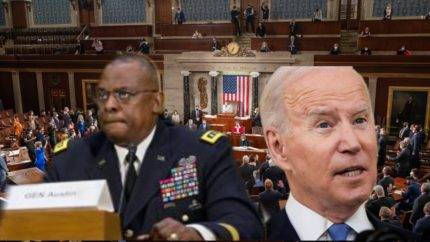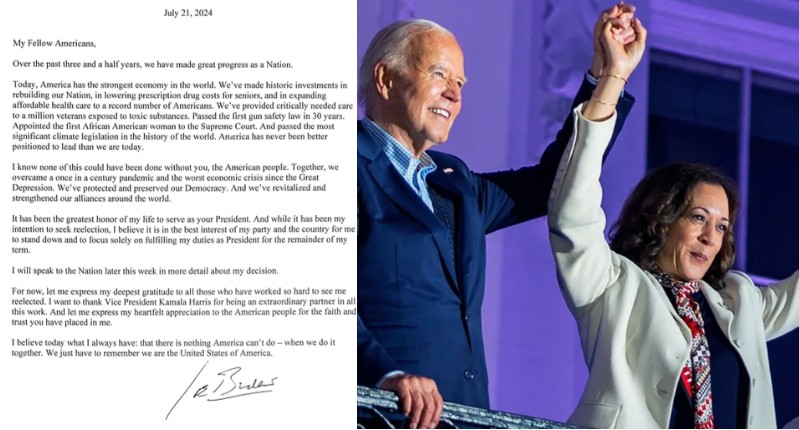United States Defense Secretary Lloyd Austin, 70, recently faced criticism for keeping his hospitalization from President Biden and Congress. This unusual decision has raised eyebrows, as it is customary for a member of the president’s cabinet to promptly notify the White House and Congress when admitted to the hospital. While the exact details of Austin’s condition remain unknown, sources close to the situation have confirmed that it is not life-threatening. Nevertheless, the seriousness of the situation is underscored by reports that initial medical procedures led to complications, placing Austin in the intensive care unit.
This departure from standard protocol has sparked concerns about transparency and accountability within the government. The decision to withhold information for days has left both the White House and Congress in the dark, prompting questions about the reasons behind such secrecy.
Pentagon’s Statement Left Questions Unanswered About Defense Secretary Lloyd Austin
The Pentagon released a statement yesterday, reassuring the public that Secretary Austin is “recovering well and in good spirits,” having resumed his duties on Friday night. However, no information has been provided regarding a potential release date. This lack of transparency further fueled the controversy surrounding Austin’s hospitalization.
Insiders reveal that Acting Secretary Kathleen Hicks, next in line to assume the role during Austin’s absence, was only informed more than 24 hours after the incident. Hicks, who was on vacation in Puerto Rico at the time, offered to return immediately upon learning of Austin’s hospitalization. However, she was advised that Austin would be resuming his duties on Friday. The delayed communication to key officials has intensified concerns about the handling of the situation.
Congressional Inquiries About Defense Secretary Lloyd Austin and Public Response
In response to the unfolding situation, members of Congress, including both Democrats and Republicans, are demanding answers. House Armed Services Committee leaders, Republican Mike Rogers and Democrat Adam Smith, issued a joint statement expressing dissatisfaction with the information provided thus far. The statement highlights lingering questions about the nature of the medical procedure, the resulting complications, Austin’s current health status, the delegation of his responsibilities, and the reasons for the delayed notification to the President and Congress.
Despite the controversy, President Biden has expressed continued confidence in Secretary Austin. However, the public and lawmakers are eagerly awaiting a more detailed explanation of the events surrounding Austin’s hospitalization. Austin himself acknowledged the lapse in informing the public, stating that he could have done a better job in ensuring appropriate disclosure. The situation remains fluid, with concerns persisting about the transparency and communication within the highest levels of the U.S. government.
Lloyd Austin‘s Silent About Hospitalization Raises National Security Concerns
The recent revelation of Defense Secretary Lloyd Austin keeping his hospitalization undisclosed from the White House and Congress has ignited concerns, particularly given the critical role the Defense Secretary plays in the United States’ national security apparatus. As the overseer of the military forces and a key decision-maker in matters of defense, the Secretary’s responsibilities are integral to the country’s security, especially during times of war in the Middle East.
With ongoing military actions in Gaza, Iraq, Syria, and Yemen, critics argue that the lack of communication regarding Austin’s health poses potential risks to national security. In this turbulent geopolitical landscape, the Defense Secretary’s ability to fulfill duties is paramount for effective decision-making and ensuring the continuity of military operations. The situation underscores the need for a transparent and reliable chain of command, prompting questions about the potential impact on U.S. military actions in the region.
Lloyd Austin Ignored Chain of Command, National Security, and Continuity
The pivotal role of the Defense Secretary necessitates a seamless transition of authority in the event of hospitalization. The uninterrupted decision-making related to national defense is crucial to avoid disruptions that may compromise the nation’s security. Without timely communication to the President and Congress, there is a risk of creating a power vacuum and hindering the ability to respond promptly to emerging threats.
As Lloyd Austin is unable to fulfill his duties due to health reasons, establishing an acting secretary or an alternative framework becomes imperative to maintain the integrity of the national security apparatus. This ensures that even during the Secretary’s absence, the country can effectively respond to evolving security challenges. The importance of prompt notification to the highest levels of government is underscored by the need for strategic and consistent decision-making during these critical times, preventing potential vulnerabilities in the nation’s defense structure.
Transparency, Accountability, and Constitutional Implications
Transparency and accountability are cornerstones of a democratic system, and the silence surrounding Austin’s hospitalization raises concerns about these principles. The government’s commitment to openness is demonstrated by promptly informing the President and Congress about high-ranking officials’ health issues, maintaining public trust and confidence.
Legal analysts have questioned the constitutionality of the situation, emphasizing the importance of aligning with the U.S. Constitution’s separation of powers. The President relies on the Defense Secretary’s information for informed decision-making as the Commander-in-Chief, while Congress holds oversight responsibilities. Keeping both branches informed aligns with constitutional principles of checks and balances, reinforcing the necessity for transparency in matters crucial to national security. As debates surrounding the constitutionality of this situation continue, the public awaits a clearer understanding of the implications on the nation’s defense and the constitutional responsibilities of those in power.
Table of Contents
Discover more from OGM News NG
Subscribe to get the latest posts sent to your email.














